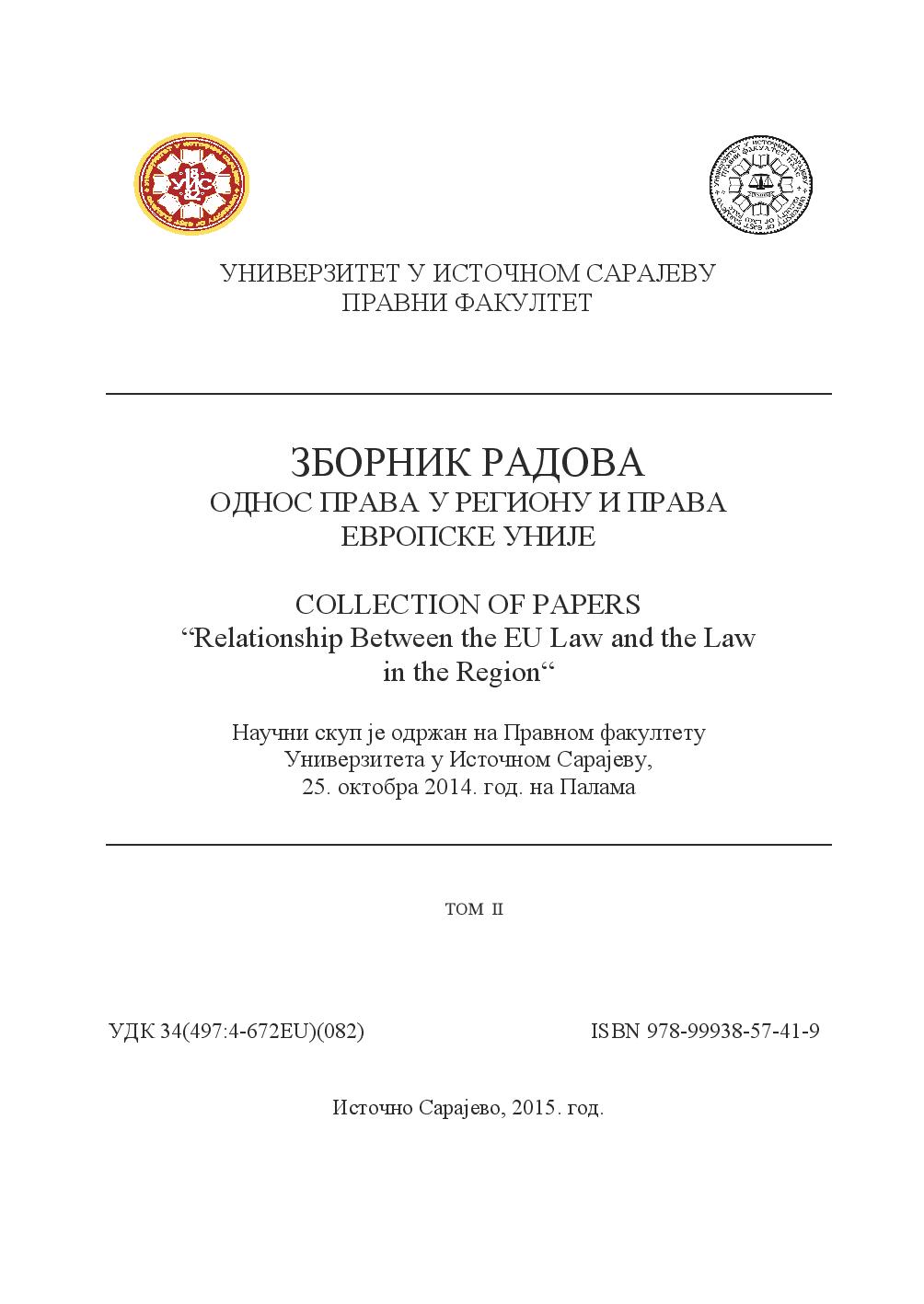Правната регулатива на сопственоста во правниот систем на Република Македонија и можностите за хармонизација со европското законодавство
The Regulation of Ownership in the Legal System of Republic of Macedonia and the Possibilities for Harmonization With EU Las
Author(s): Rodna Živkovska, Tina Pržeska
Subject(s): Law, Constitution, Jurisprudence, Civil Law, EU-Legislation
Published by: Правни факултет Универзитета у Источном Сарајеву
Keywords: Ownership; Legislation; Harmonization; European Union; Real rights; Real estate; Property;
Summary/Abstract: This text has shown that for the European Union it is important to create a legal system that provides successful realization of the goals and functions of the Union by harmonization and unification of European legislation. The harmonization process, as it is shown in the text, is especially important in the area of private law because of its connection with the functions of the internal market (the realization of the four freedoms – free movement of goods, services, persons and capital). The directives are primary instrument for harmonization in the area of private law. They provide minimal or full harmonization of certain elements of private law.Alongside the process of harmonization, the text shows that the European Union is also committed to the process of unification of private law. Unlike harmonization that only helps to bring together the legal system of different European countries, the unification process is directed towards creating laws that are directly applicable in the legal systems of member states. On the long run, the legal scholars consider the process of unification to be a steppingstone to the ultimate goal – the implementation of the European Civil Code.However, the opinions differ in regards to the question which parts of private law may be regulated by the European Civil Code. The prevailing opinion is that unification is possible in the area of obligations since those relations are directly linked to the functions of the internal market.Retarding the property law, the text shows that there is no real harmonization in the scope of the European Union. As main reason are listed:the differences between legal systems (common law and continental law),different legal traditions in member states and the principle lex rei sitae.The text has shown a lot of arguments made by legal scholars leading to the conclusion that harmonization in the area of property law is difficult (according to some unnecessary), but there are those that regard harmonization to be a possibility to certain extent. Such harmonization of property law may be achieved if there is a consensus that ownership is a right that needs protection on highest lever, consensus in regard of the principles of regulating property (numerus slausus, transparency, publicity, erga omnes),determining hierarchy between real rights and the creation of a “matrix” for property rights.The text shows that research of legal scholars regarding the possibilities and methods of harmonization of European Private Law, including property law, has resulted with the Draft Common Frame of References that contain principles, definitions and model-rules from different areas of private law,including the acquisition and loss of ownership on movables.As it is shown in the text, other important project directed towards the harmonization of property law is the European Union Land Information Service (EULIS). The main function of EULIS is to provide transparency in the real estate market. However, it is considered that EULIS might be the first step to harmonization of European property law in the area of real estate registration. The text has shown that the implementation of the Law of Real Estate Cadastre from 2013 in Republic of Macedonia creates the possibility for the Agency for Real Estate Cadastre to be connected to EULIS (for now only partially).The text has shown that the possibilities for harmonization of Macedonian property law with the legislation of the European Union is being analyzed by the Working Group authorized to prepare Draft of a new Law of Ownership and Other Real Rights. The Working Group was formed on part of the Ministry of Justice in 2013 and it consists of legal scholars that include the authors of this text and legal practitioners such as judges, notary public,lawyers and etc. The Working Group has given a general recommendation for harmonization of the property law, and also provided precise suggestions regarding the possibilities for harmonization such as: implementing the principles that are found in property law in European countries (priority,transparency, superficies solo credit, bona fides and etc.), new regulations on things as object of ownership, the concept of the right of ownership as indivisible right that may be exercised by one or several persons, and full implementation of the principle of numerus clausus. The general conclusion of the authors of this text is that Macedonia needs to follow the contemporary development of property law in the European Union, but the implementation of new laws in the process of harmonization should be done gradually in the Macedonian legal system when the proper economical and legal conditions are fulfilled.
Book: Зборник радова "Однос права у региону и права Европске уније" Том II
- Page Range: 91-113
- Page Count: 23
- Publication Year: 2015
- Language: Macedonian
- Content File-PDF

